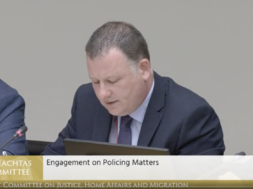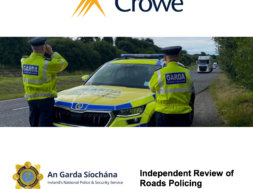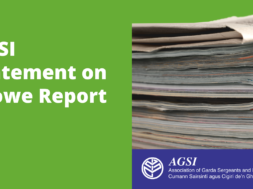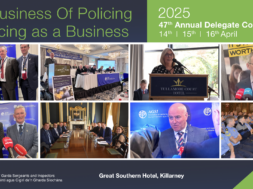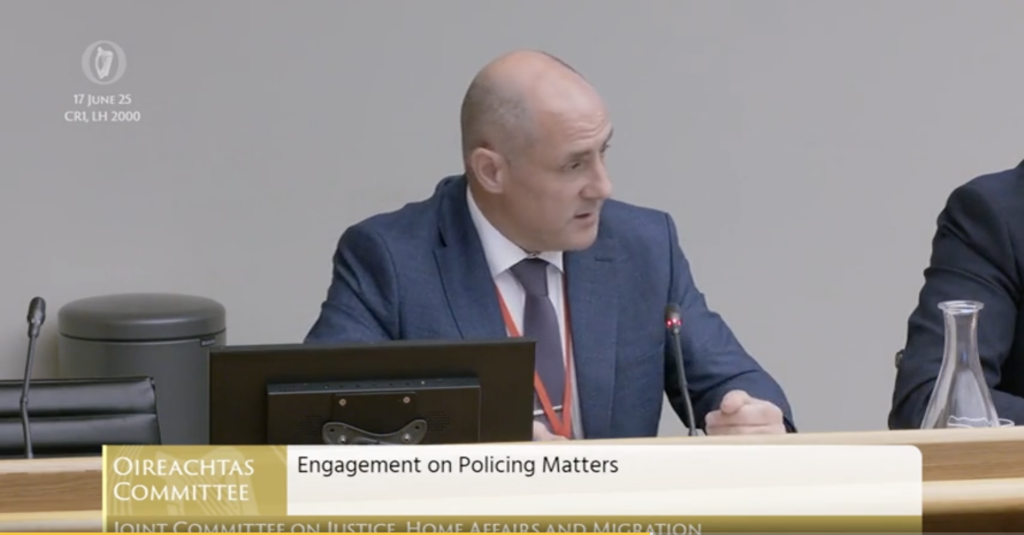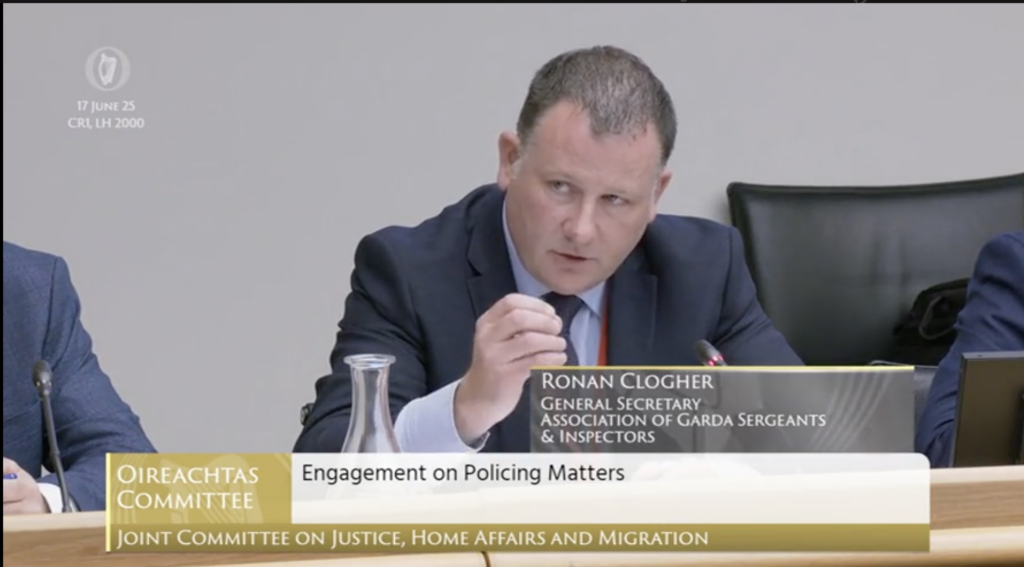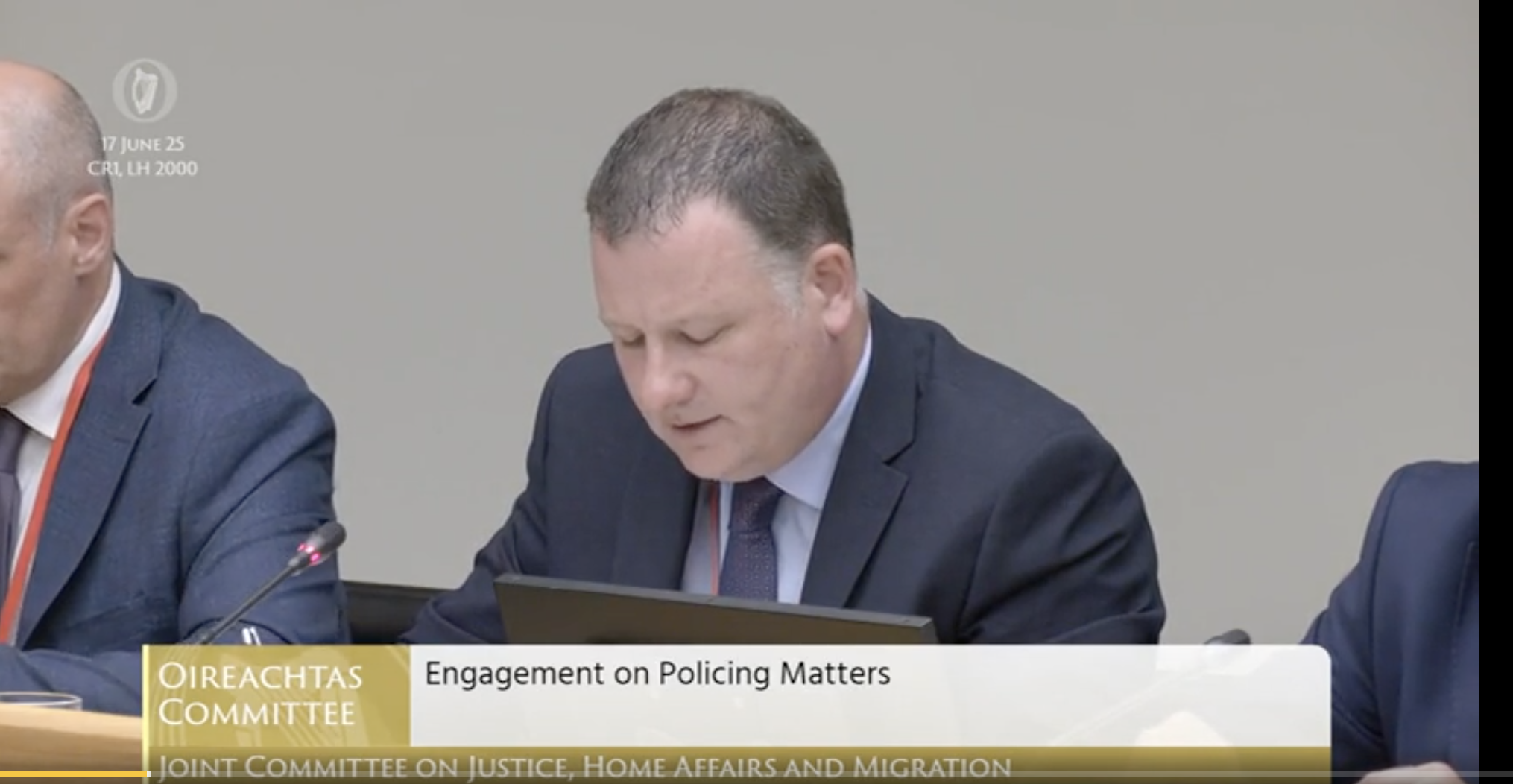
The Association of Garda Sergeants and Inspectors (AGSI) attended the Joint Oireachtas Committee on Justice, Home Affairs and Migration on Tuesday 17 June, 2025. AGSI has called for the strength of An Garda Síochána to be increased to 18,000 to serve an increasing population but also to prevent a policing crisis.
Representing middle-ranking Gardaí, AGSI highlighted issues around recruitment and retention, the Operating Model, and the erosion of community and roads policing. With Garda numbers stagnating and dissatisfaction rising across the force, AGSI repeated our calls for urgent action. AGSI recognises the dual role of An Garda Siochana as Ireland’s Policing and National Security Service and recognises the work done by Government and the Minister for Justice in strengthening National Security but with the evolving international landscape we call on Minister Jim O’Callaghan to continue his work in strengthening resources and legislation in this area.
WATCH THE JUSTICE COMMITTEE HEARING
Representing AGSI, were President Declan Higgins, General Secretary, Ronan Clogher, and Deputy General Secretary, Kevin Bolger. Here are the key points made by AGSI during our opening statement and during interactions with members of the Committee.
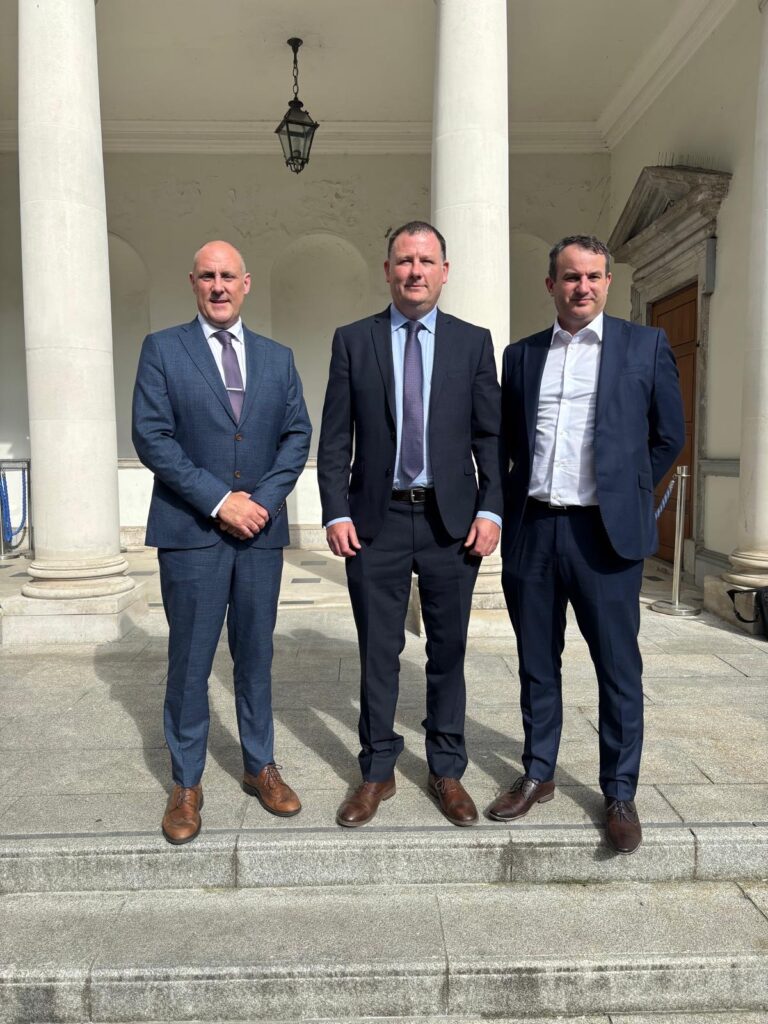
Recruitment and Retention – A System at Breaking Point
Recruitment and Retention remains a significant challenge for An Garda Síochána. Difficulties experienced securing new entrants and retaining members have been frustratingly consistent over the last five years, with numbers hovering either side of the 14,000 mark.
AGSI pointed to more systemic root causes which need to be resolved. These include:
- Poor pay and pension conditions for post-1995 and post-2012 recruits
- The demoralising impact of social media scrutiny
- Excessive oversight and a burdensome bureaucratic culture
- Growing workloads and operational stress
- Stakeholder exclusion and industrial relations processes
AGSI believes the optimum strength of sworn members of An Garda Siochana should be in the region of 18,000. This is due to population increases and evolving policing demands. An Garda Siochana is now entrenched within a cycle of continuous failures to meet recruitment targets year-on-year. This failure has not been sufficiently recognised by Government or Garda management with the Government in recent years attributing this to Covid, full employment and lifestyle choices.
Operating Model “Has Failed”
A significant portion of AGSI’s submission was devoted to the unworkable Operating Model implemented by Garda management and government. Adapted from international policing systems, the model has, according to AGSI, failed to account for Ireland’s unique geography and rural-urban dynamics.
Gardaí on the ground report increased administrative burdens, confusing responsibilities, excessive centralisation, and the disappearance of key leadership roles from local areas. AGSI’s own questionnaires show widespread dissatisfaction, with officers reporting a decline in service quality and visibility. The Operating Model was the dominant issue at our Conference this year also. Our members are worried that it’s not serving the public well. There’s a significant and growing frustration in the AGSI that we are not being listened to.
Despite isolated benefits such as the creation of Business Services Hubs and Divisional Protective Service Units, AGSI argues these could have been implemented without the sweeping changes brought by the Operating Model. International police forces are now abandoning similar systems in favour of more traditional, effective approaches.
AGSI reiterated our call for Garda Management to release their internal survey circculated in May 2024 on the Operating Model. AGSI has conducted our own member survey which highlights the organisational-wide dissatisfaction with it.
Community Policing in Decline
Community policing, long seen as the heart of the Garda mission, is also in decline. Gardaí permanently assigned to community roles have dropped from 807 in 2015 to just 697 today. Officers in these roles are frequently redeployed to fill gaps in other units, undermining trust-building efforts and local engagement. Community Gardai interact with all their local community partners such as businesses and residents whilst also engaging with an array of community services. They deliver school programmes and embed themselves into their communities to develop and foster solid connections and trust within, to this Association this is interactive community policing.
The membership of AGSI are committed to delivering excellent service, but they feel this is being eroded and lost. A 2024 AGSI survey showed that 96% of respondents believe community policing has not been improved by the new Operating Model. The Gardai don’t know the people and the people do not know their local Gardai. These community policing Gardai are the link between all stakeholders and that link cannot be lost or broken any further.
Roads Policing Suffers from Staff Shortages
Road safety is another area of concern.
Roads Policing Units (RPU) have seen their numbers drop by 41% over the past 15 years, from 1,046 officers in 2009 to just 620 in 2024. While there are plans to increase this to 700, the current figure remains around 635.
The tragic death of Garda Kevin Flatley is a reminder of the dedication and tireless efforts of road policing officers, and AGSI welcomed increased investment in technology and vehicles. However, issues such as staff abstraction, a lack of enhanced training, and low morale continue to obstruct progress.
The Association is calling for a national road safety strategy that blends strong enforcement with public education and cross-agency collaboration.
“No One is Listening”
A recurring theme throughout AGSI’s statement is frustration with management, with policymakers, and with the overall direction of policing in Ireland.
We have been talking about the Operating Model for four years and there is no one listening. But it’s the public that will suffer.
AGSI concluded by urging the Committee to recognise AGSI members not just as employees but as key stakeholders in shaping the future of a modern policing service.
Without decisive and meaningful reform, the Association warns, the Gardaí may struggle to meet the most basic expectations of public safety and community engagement in the years ahead.
